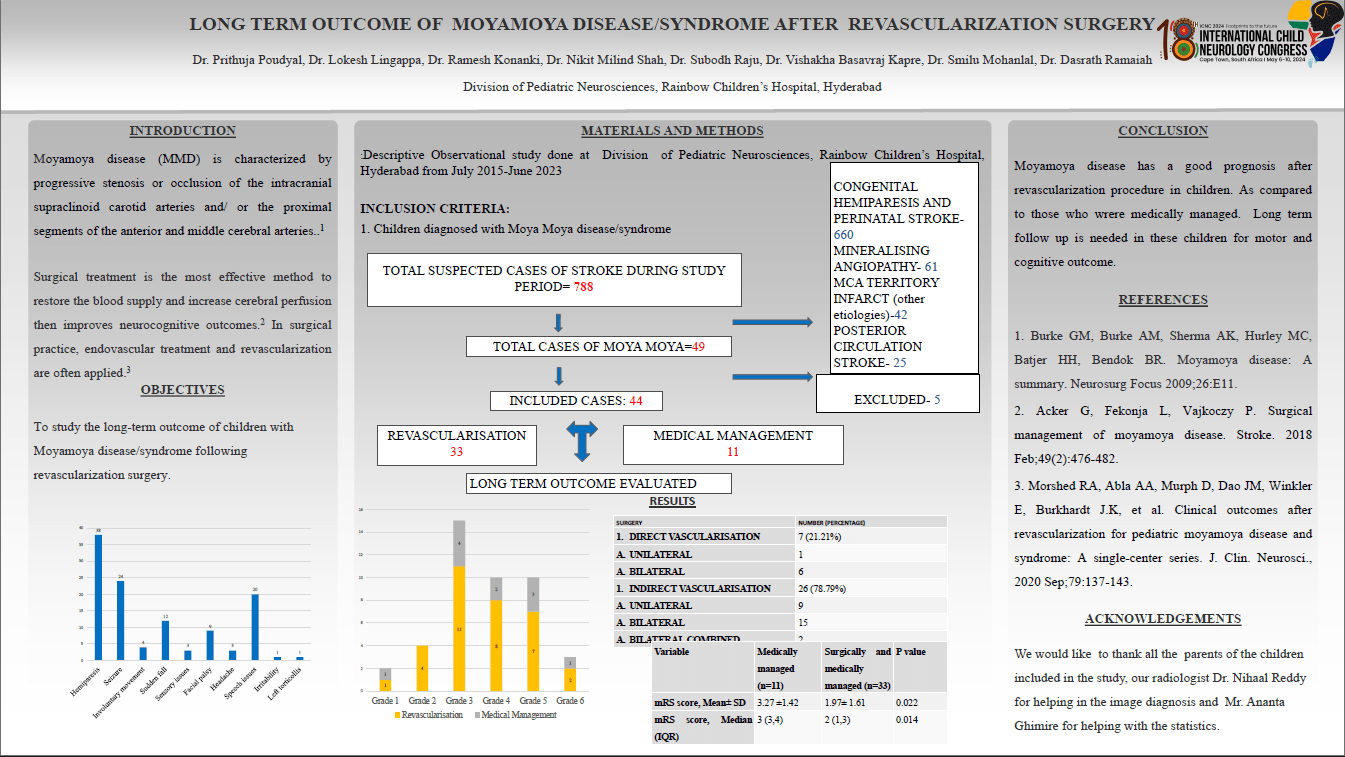Long Term Outcome Following Revascularization Surgery In Children With Moyamoya Syndrome.
INTRODUCTION: Moyamoya syndrome is progressive cerebral arteriopathy. We studied the long-term outcome of children with Moyamoya disease following revascularization surgery.
METHODS: Retrospective data of 35 children with Moyamoya disease attending tertiary care hospital over 8 years period was analyzed. The clinic-radiological spectrum and outcome at last follow-up was recorded and analyzed.
RESULTS: Total of 42 cases were diagnosed with Moyamoya disease during study period. Mean and median age of presentation was 52.38months and 48months respectively. The most common presenting symptoms was weakness in 94.28% (33/35 cases). Seven cases (20%) had syndromic association. Total of 27/35 cases (77.14%) underwent surgical intervention,. Encephaloduroarteriomyosynangiosis (EDAMS) was done in 20 cases (74.07%) and EDAMS with direct bypass in 5 cases (18.51%). The mean and median of the Modified Rankin Scale (mRS) for children who underwent surgery is 1.92 and 2 respectively (n=27) and the score for cases who were managed medically was 3.375 and 3 respectively (n=8). Good outcome (mRS of 0-2) 18/27 in operative group vs 2/8 in medical treatment group (p value 0.18).
CONCLUSION: Early diagnosis and intervention alters the outcome of moyamoya syndrome in pediatric patients. There is a trend towards better outcome in children who have undergone surgical intervention.
Prithuja Poudyal
Rainbow Children's Hospital
India
Lokesh Lingappa
Rainbow Children's Hospital
India
Ramesh Konanki
Rainbow Children's Hospital
India
Subodh Raju
AIG Hospital
India
Vishakha Basavraj Karpe
Rainbow Children's Hospital
India
Smilu Mohanlal
Aster Malabar Institute of Medical Sciences
India
J. Dasaratha Ramaiah
RDT Hospital
India
Bhoomika Sharma
Rainbow Children;s Hospital
India
